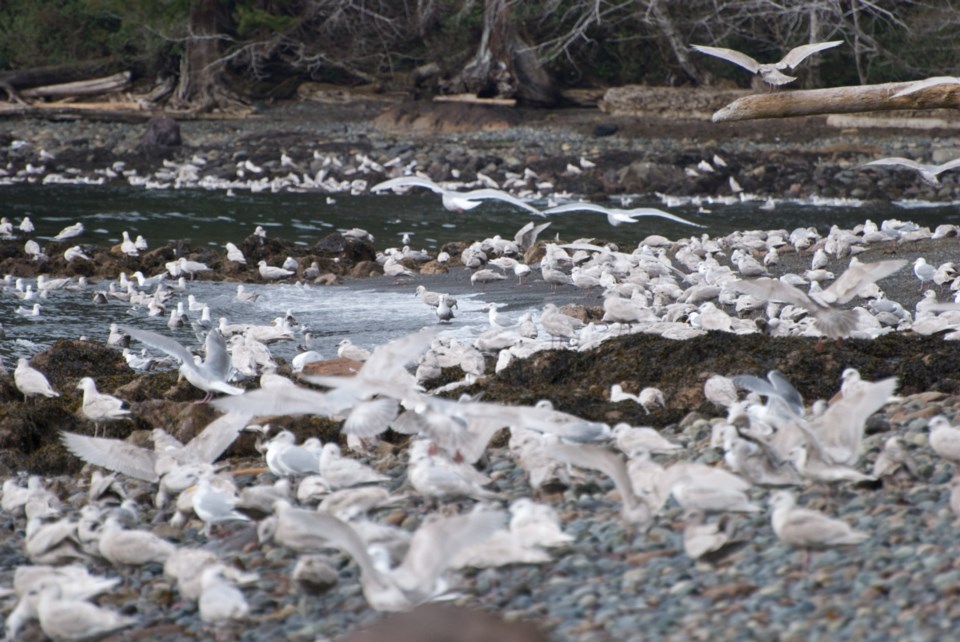Scientists on Vancouver Island have for the first time linked spawning Pacific herring, a well-known marine food fish, to the health of land creatures big and small.
“We often talk about how salmon subsidize and influence ecosystems by providing food but herring are also one of these species — and we have them in abundance,” said Caroline Fox, the lead researcher on a study released by the Raincoast Conservation Foundation and the University of Victoria. After a worrisome decline, herring stocks look to be bouncing back.
While the effects of herring on marine life have been studied, scientists haven’t really looked at what happens in other ecosystems when waves of eggs wash ashore during spawning.
“It is a spectacular natural event,” Fox said, describing a milky wave of fish sperm that fertilize eggs on gravel, beach and kelp beds, with birds flocking to feed.
Fox grew up near Parksville, where she saw the phenomena first-hand.
She said fishermen call it “white water” and that aboriginal people have long observed the effects along the food chain.
“This is not just a marine issue,” Fox said about the spawn, as roe is carried into tidal pools and on land. She and a team of researchers focused on Quatsino Sound, an isolated area on the northern tip of northwestern Vancouver Island.
“It’s small but has a reliable spawn and relatively intact environment, with old-growth [forests], black bears and coastal wolves,” she said. The study started with the smallest creatures: intertidal invertebrates.
“Sandhoppers, or beach fleas as some people call them, eat the eggs dead or alive,” said Fox. The researchers found that herring eggs are high in essential fatty acids. This nutrition is then passed up the food chain to the next predator.
Sandhoppers are a major part of the black bear diet. “They forage quite heavily on them in the spring. If they make it out of their dens early they eat the [herring] eggs directly,” Fox said.
This will be explored more in the next phase of the study, which will look at how herring are linked across water and land ecosystems, namely to provide sustenance for terrestrial animals such as bears and wolves.
“This is one more example of how humans are short of understanding the complexity of the ecosystems on our coast,” Fox said.
Colin Campbell, a science advisor at the Sierra Club environmental group, has campaigned for better policies to protect herring in the ocean. He said this study strengthens the argument that herring are not only a necessary presence, but needed in abundance.
“The sheer abundance of herring is what makes them important. They need that energy to move through the ecosystem to make sure the predators get their share,” he said.
For more information and a link to the study, visit: raincoast.org.



